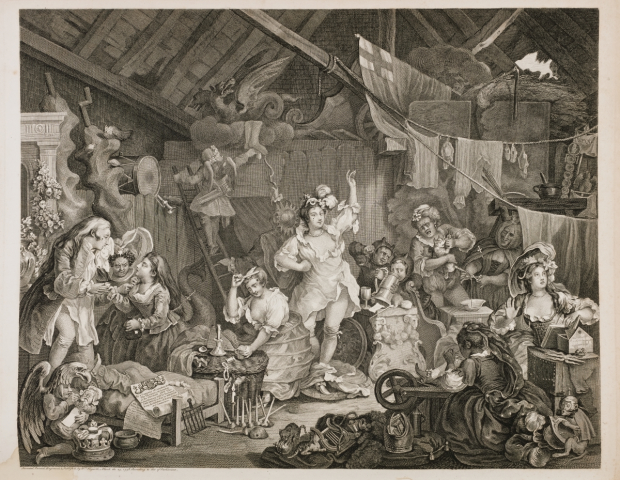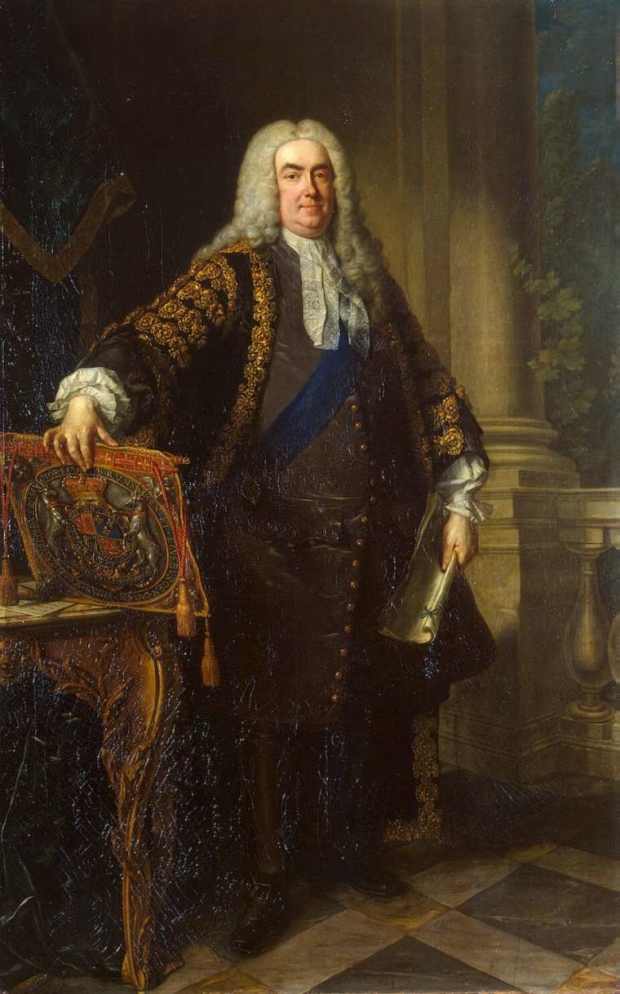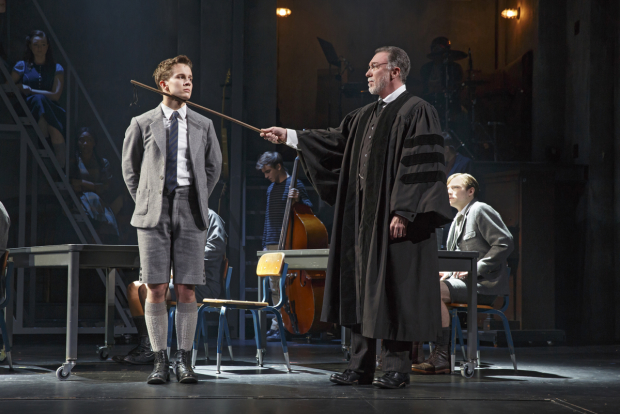Of Censors and Correctors

The school term had started placidly enough. I was boring my Theater History II class, in my usual fashion, with the customary lot of tiresome stuff about London theater during the Restoration and the early 18th century: William Wycherley and William Congreve; the advent of actresses and women playwrights; Jeremy Collier and the ominous rise of moralizing "sentimental" comedy; the advent of Handel — they suffer a little here because I always insist on singing a few bars of "Their land brought forth frogs" — and the craze for Italian opera; John Gay and the persistence of a sardonic undercurrent beneath the prevailing sentimentality. It was all as usual, with me babbling enthusiastically and the students all being politely bored. And then I got to 1737.
To teach theater history in the English-speaking world, you have to get to 1737. It changed everything, and there isn’t any way around it. Sir Robert Walpole, England’s then prime minister, tired of the theater’s relentless satirical attacks on his highly corrupt regime, first by Gay and then chiefly by Henry Fielding, induced Parliament to pass the Theatrical Licensing Act, which meant that all plays produced in England would from that point on have to be read and approved for performance by the Lord Chamberlain’s office. At which point serious playwriting in England went, more or less, to hell (with a few rare exceptions).
Nearly 150 years passed before the British theater began to recover, in the late 1880s, when a new generation of theatrical intelligentsia began fighting the censorship in earnest and discovering ways around it. And even then it took another seven decades before the Lord Chamberlain’s censorial duties were abolished by Parliament, in 1968, and the office of his Examiner of Plays was finally done away with forever.

That was the story, and I could have ended it there, making a smooth transition into the era of David Garrick, and the rise in the late 18th century of the "laughing comedy" of Richard Brinsley Sheridan and Oliver Goldsmith. I could have, except that one of my students, who’d been plucking Wikipedia articles off the Web on her iPad, as I went along, asked me innocently if I’d ever read, or seen a production of, The Golden Rump. This was the play that had started it all, you see, a work that was at once so obscene, and so alarmingly seditious, that the mere suggestion of its possible arrival onstage had shocked most members of both houses of Parliament into supporting Walpole’s proposed Licensing Act.
So I had to explain to my student that, as far as I or anyone else knew, The Golden Rump didn’t exist and probably never had existed, that it was Walpole’s equivalent of the nonexistent weapons of mass destruction that another politician would invent in our own time — a trick to scare people into voting for a bill he wanted passed. Naturally, I added, once the censorship had been instituted, its censors found a great many censorable things in the theater, of a wide variety of different kinds…
And that, inevitably, opened the floodgates. I started giving examples. Examples of the Lord Chamberlain’s censorship at its most trivial, at its most malicious, at its most economically abusive, at its most politically biased, at its most ludicrously misguided and arrantly absurd. I didn’t deal with the big upheavals it faced when confronted with Henrik Ibsen’s Ghosts and G.B. Shaw’s Mrs. Warren’s Profession, because both are on this term’s reading list, and we’ll get to them in detail later.
I did indicate to my students, though, the massive number of important modern plays — Oscar Wilde’s Salome, Frank Wedekind’s Spring's Awakening, Arthur Schnitzler’s La Ronde, Luigi Pirandello’s Six Characters in Search of an Author — that, until the bans were lifted, England could only view in complete form by turning a theater into a private club and selling tickets to members only. And that gave me the cue to explain how an ordinary ticket-buying public in England in 1965 had been able to hear, for the first time, that the heroine of August Strindberg’s Miss Julie was having her period: The director of the National Theatre’s production, which starred Albert Finney and Maggie Smith, had appealed to the Chamberlain’s office for permission to reinstate the forbidden sentence because, he said, "we find that the omission of the phrase ‘menstrual period’ is blocking the flow of the scene."

(© Joan Marcus)
Yes, the Censorship had been created to curb political commentary, but sex and its attendant biological processes soon became the office’s major secondary preoccupation, with religion running it a close third. One primly pious Examiner of Plays in the early 19th century is alleged to have made a playwright change the phrase "drunk as a lord" to "drunk as a heaven." Another, a century or so later, told a raunchy Anglo-Irish playwright that the puckish exclamation, "Balls of the Medici!" was impermissible, adding, "‘Testicles of the Medici’ would be an acceptable substitute." (The overzealous censor was apparently unaware that the three golden balls which decorate the sign of every pawnshop come from the Medici family’s coat of arms.)
The fourth of the British censorship's great bugbears, any onstage depiction of members of the royal family or their recent ancestors, is even harder to comprehend today, when we’ve just enjoyed Helen Mirren’s impersonation of England’s present queen in The Audience, and are looking forward to the arrival from London of King Charles III. In the mid-1930s, the British had to flock over here to relish Helen Hayes’s acclaimed performance in the title role of Laurence Housman’s Victoria Regina, a play that could not conceivably have done her descendants the least harm.
But the harm plays allegedly do, as opposed to the actual harms that censorship inflicts, is a matter about which I’ll have more to say next week, when I deal with the fate of some famous American plays under the English censorship’s hand.
For part II of this "Thinking About Theater" column, click here.
Michael Feingold has twice won the George Jean Nathan Award for Dramatic Criticism, most recently in 2015 for his "Thinking About Theater" columns on TheaterMania, and has twice been a finalist for the Pulitzer Prize in Criticism. He serves as chairman of the Obie Awards and has also worked as a playwright, translator, and dramaturg.










